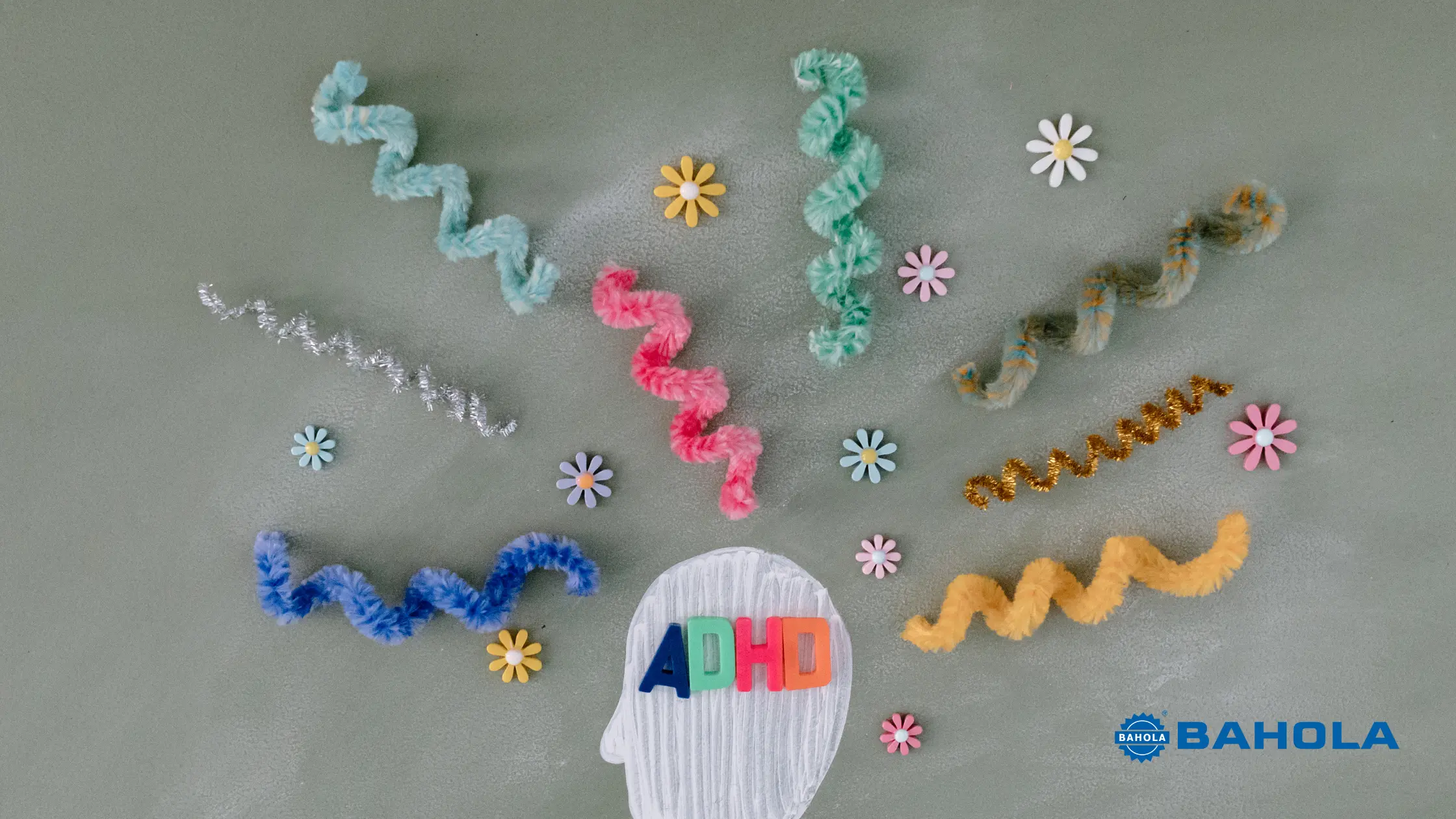
Attention-Deficit/Hyperactivity Disorder (ADHD) is a neurodevelopmental disorder that affects both children and adults. It is characterized by persistent patterns of inattention, hyperactivity, and impulsivity that interfere with functioning or development. While often diagnosed in childhood, ADHD can continue into adulthood, impacting various aspects of life including academic performance, work efficiency, and interpersonal relationships.
What is ADHD?
ADHD is divided into three primary types:
- Predominantly Inattentive Presentation: Difficulty sustaining attention, following through on tasks, and organizing activities.
- Predominantly Hyperactive-Impulsive Presentation: Fidgeting, excessive talking, and impulsive actions that occur without thinking.
- Combined Presentation: Symptoms of both inattention and hyperactivity-impulsivity are present.
Detecting ADHD
Early detection of ADHD can significantly improve the management and quality of life for those affected. Diagnosis typically involves a comprehensive evaluation, including:
- Behavioral Assessments: Observations and standardized questionnaires completed by parents, teachers, and individuals.
- Clinical Interviews: Detailed interviews conducted by healthcare professionals to gather medical, social, and family history.
- Psychological Testing: Tests to evaluate cognitive functions and rule out other conditions.
- Rating Scales: Standardized tools like the Conners’ Rating Scales or the ADHD Rating Scale IV.
Symptoms of ADHD
ADHD symptoms can vary depending on the type. Common symptoms include:
Inattention:
- Difficulty sustaining attention in tasks or play activities.
- Frequent careless mistakes in schoolwork or other activities.
- Often not listening when spoken to directly.
- Difficulty organizing tasks and activities.
- Avoidance of tasks that require sustained mental effort.
- Frequent loss of items necessary for tasks and activities.
- Easily distracted by extraneous stimuli.
- Forgetfulness in daily activities.
Hyperactivity and Impulsivity:
- Fidgeting with or tapping hands or feet, squirming in seat.
- Inability to stay seated in situations where expected.
- Running or climbing in inappropriate situations.
- Inability to play or engage in leisure activities quietly.
- Excessive talking.
- Blurting out answers before questions are completed.
- Difficulty waiting for their turn.
- Interrupting or intruding on others’ conversations or games.
Causes of ADHD
The exact cause of ADHD is not fully understood, but it is believed to result from a combination of genetic, environmental, and neurological factors. Key contributing factors include:
- Genetics: ADHD often runs in families, indicating a strong genetic component.
- Brain Structure and Function: Differences in brain structure, especially in areas related to attention and impulse control, can contribute to ADHD.
- Environmental Factors: Exposure to certain environmental toxins during pregnancy or at a young age can increase the risk.
- Premature Birth: Being born prematurely can be a risk factor for developing ADHD.
Diets to Avoid and Include
Diet can play a role in managing ADHD symptoms. While dietary changes alone may not cure ADHD, they can complement other treatment strategies.
Foods to Avoid:
- Sugary Foods and Beverages: High sugar intake can lead to energy spikes and crashes, exacerbating hyperactivity and inattention.
- Artificial Additives: Certain artificial colors, flavors, and preservatives have been linked to increased hyperactivity.
- Caffeine: While it can have a stimulating effect, it may worsen anxiety and disrupt sleep patterns.
- Highly Processed Foods: Foods high in additives, preservatives, and unhealthy fats can negatively impact brain function and behavior.
Foods to Include:
- Protein-Rich Foods: Eggs, lean meats, beans, and nuts can help regulate blood sugar levels and maintain energy.
- Omega-3 Fatty Acids: Found in fish like salmon, flaxseeds, and walnuts, omega-3s are beneficial for brain health.
- Complex Carbohydrates: Whole grains, fruits, and vegetables can help sustain energy levels and improve concentration.
- Iron-Rich Foods: Spinach, red meat, and fortified cereals can support cognitive function.
Homeopathic Medicine for ADHD
Homeopathy offers a holistic approach to managing ADHD, focusing on individual symptoms and overall well-being. Some commonly used homeopathic remedies include:
- Stramonium: Useful for children who are fearful, restless, and prone to sudden outbursts.
- Hyoscyamus: Indicated for those with impulsive behaviors, jealousy, and hyperactivity.
- Tarentula Hispana: Beneficial for extreme restlessness, impatience, and a tendency to be destructive.
- Veratrum Album: Suitable for hyperactive children who display compulsive behavior and temper tantrums.
- Tuberculinum: For those who are disobedient, restless, and constantly seeking change.
Homeopathic treatment for ADHD is tailored to the individual, considering their unique symptoms and overall health. Consulting with a qualified homeopath is essential for developing an effective treatment plan.
Conclusion
ADHD is a complex and multifaceted disorder that requires a comprehensive approach to management. Early detection, understanding the symptoms, and recognizing potential causes are crucial steps. Diet plays a significant role, and avoiding certain foods while incorporating beneficial ones can support overall health and symptom management. Homeopathic medicine offers a natural and individualized approach to managing ADHD, aligning with Bahola’s commitment to innovation and holistic wellness. At Bahola, we believe in empowering individuals with the knowledge and tools to achieve optimal health through natural and effective remedies.



